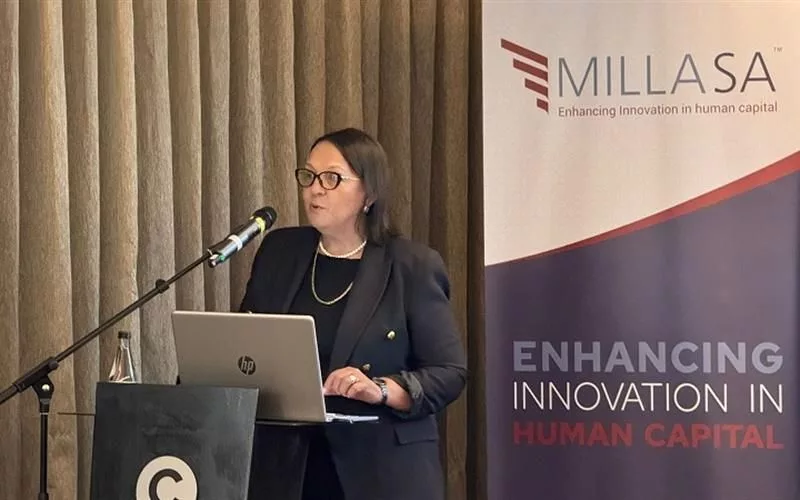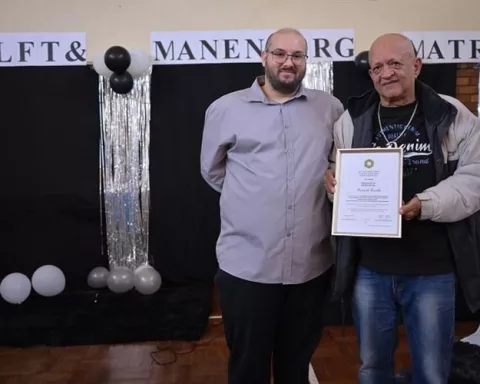Cape Town is leading the way in sustainable energy with a commitment to reduce reliance on Eskom and eradicate load shedding by 2026 through renewable energy projects and investments in infrastructure. The city is investing heavily in the Steenbras Pumped Hydro Storage plant and aims to infuse up to one gigawatt of independent power into its grid within the next five years. With a range of programmes designed to facilitate market interventions and a commitment to energy resilience, Cape Town is setting an example for others to follow.
Cape Town is committed to a sustainable energy future through renewable energy projects and infrastructure investments, with the goal of reducing reliance on Eskom and eradicating load shedding by 2026. The city’s energy policy includes market interventions like liaising with independent power producers and developing sustainable and efficient alternatives. Cape Town is also investing heavily in the Steenbras Pumped Hydro Storage plant and plans to infuse up to one gigawatt of independent power supply into its grid within the next five years.
As the clock ushers in a new dawn on April 4, 2024, a pivotal discussion is poised to unfold on the subject of energy sustainability in Cape Town. The 3rd Annual Electricity Wheeling Conference will serve as the platform where the city’s energy profile will be showcased to the global community. The spotlight will be on the city’s Mayoral Committee Member for Energy, Councillor Beverley van Reenen.
The term ‘wheeling’ is a concept within the complex semantics of energy, and it refers to a system where third-party operatives exchange electricity using the existing grid infrastructure of the city. This approach forms a vital part of the city’s multi-pronged strategy to diversify its power supply. However, the burning question remains – what lies beyond the present?
Councillor Van Reenen unfolds a vivid blueprint of the city’s vision, one that is shimmering with the promise of sustainability. The objective is to safeguard the city’s inhabitants and enterprises from the destabilising and harmful protocols of Eskom’s load-shedding by 2026. The future-proofing of the city’s energy supply will be accomplished through the adoption of renewable energy projects, with the end game of reducing reliance on Eskom and facilitating a prosperous energy market.
Cape Town: Beacon of Energy Resilience & Hope
Cape Town shines as a beacon of hope, not just for South Africa, but for the entire African continent. The city serves as a successful example in the face of fluctuating energy conditions.
Delving into the intricate mechanics of the city’s energy dynamics, Van Reenen emphasises the critical necessity of understanding the city’s unique position. Cape Town is acutely aware of the specific challenges that South Africa’s energy sector faces and is therefore investing heavily in the maintenance and development of the Steenbras Pumped Hydro Storage plant. This initiative is a fragment of a broader portfolio of renewable energy investments, projected to be worth an impressive R120 billion over the next decade. The aim is to buffer the city from the detrimental effects of load shedding.
The city’s energy policy communicates a strong commitment towards constructing an energy-resilient metropolis, assuring reliable, affordable, and carbon-neutral energy for all its citizens and businesses. This commitment is actualised in a range of programmes devised to facilitate market interventions. These efforts involve liaising with independent power producers for energy procurement and developing sustainable and efficient alternatives that challenge the current energy paradigm.
An Ambitious Energy Outlook
Looking ahead, the city of Cape Town aspires to infuse up to one gigawatt of independent power supply into its grid to eradicate load shedding in the city. The initial 650 Megawatts of this ambitious goal is anticipated to be realised within the next five years.
The Cape Town wheeling pilot substantiates the city’s dedication to energy resilience. The pilot is segmented into six individual work packages, offering a comprehensive structure for contractual agreements, municipal wheeling and feed-in tariffs, metering, data requirements and wheeling implementation.
Van Reenen’s concluding reflections echo with a sense of pride. The strides Cape Town has made testify to a city where political determination, effective administrative leadership, civic responsibility, and strong partnerships thrive, cultivating an atmosphere conducive to growth and development.
A Committed Investment in Sustainable Energy
The city’s resolve to terminate load shedding is encapsulated in the Mayor’s Energy Priority Programme. The programme of embedded independent power purchase will be bolstered with an investment of R220 million. The Power Heroes programme, aimed at encouraging voluntary power reduction, is scheduled to receive R288 million.
The flagship initiative, the Steenbras Pumped Hydro Storage plant, is set to receive an estimated investment of R1 billion over the next nine years. Not to be overlooked, solar PV and battery storage initiatives will receive investments of R640 million and R50 million, respectively. The Cash for Power programme, which encourages the resale of surplus power back to the city, is slated to receive R53 million. Waste-to-energy initiatives will also benefit from a notable investment of R32 million.
In closing, Cape Town is a city that is not just steadily advancing towards a future of energy security, but it is also setting an example for others to emulate. The decisions made today will shape the city’s energy outlook tomorrow, positioning it as a global model of energy resilience.
1. What is Cape Town’s commitment to sustainable energy?
Cape Town is committed to reducing reliance on Eskom and eradicating load shedding by 2026 through renewable energy projects and infrastructure investments, with the goal of infusing up to one gigawatt of independent power into its grid within the next five years.
2. What is the 3rd Annual Electricity Wheeling Conference, and what is its focus?
The 3rd Annual Electricity Wheeling Conference is a platform where Cape Town’s energy profile will be showcased to the global community, with the focus on energy sustainability. The conference will serve as a pivotal discussion on the city’s vision for the future of energy.
3. What is the Steenbras Pumped Hydro Storage plant, and what is its significance?
The Steenbras Pumped Hydro Storage plant is an initiative by Cape Town to buffer the city from the detrimental effects of load shedding. It is a fragment of a broader portfolio of renewable energy investments, projected to be worth an impressive R120 billion over the next decade.
4. What are some of the programmes designed to facilitate market interventions in Cape Town’s energy policy?
Cape Town’s energy policy includes liaising with independent power producers and developing sustainable and efficient alternatives to challenge the current energy paradigm. The city is committed to constructing an energy-resilient metropolis, assuring reliable, affordable, and carbon-neutral energy for all its citizens and businesses.
5. How much investment is Cape Town making in sustainable energy initiatives?
Cape Town is investing heavily in renewable energy projects and infrastructure, with a total projected investment of R1 billion for the Steenbras Pumped Hydro Storage plant, R640 million for solar PV initiatives, R50 million for battery storage initiatives, R53 million for the Cash for Power programme, and R32 million for waste-to-energy initiatives.
6. What is Cape Town’s long-term energy outlook?
Cape Town aims to infuse up to one gigawatt of independent power supply into its grid to eradicate load shedding by 2026. The city’s long-term energy outlook is focused on energy resilience, with a commitment to constructing an energy-resilient metropolis and assuring reliable, affordable, and carbon-neutral energy for all its citizens and businesses.












